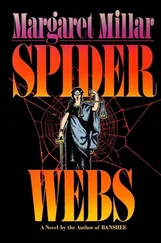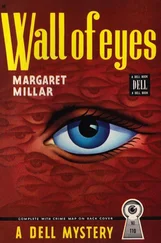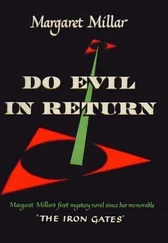“It would be better not to,” Garino said.
“Just one. Then I’ll throw the bottle away. I’m going to quit drinking — did you know? I am. I promised Birdie and I promise you, too.”
Garino brought the bottle out of the kitchen and poured her a drink. While she drank it he stood over her with melancholy patience like a hen brooding over an egg that has gone rotten in its shell.
“Now I’ll throw the bottle away, see, as I promised. Give it to me.”
Garino recorked the half-empty bottle and put it in her lap. Then he held out his arm and she pulled herself to her feet by hanging on the sleeve of his old sweater coat. She tottered toward the fireplace, balancing precariously on her new spike-heeled pumps like a child on stilts.
“Didden think I’d keep a promise, eh? Well, you were mistaken, Victor.” With loving care she placed the bottle upright in the center of the grate where the fire had died. Then she returned to the davenport breathing hard and noisily, as if she had walked, not the width of a room, but a great distance across a span of years.
She sat down carefully, her eyes avoiding Garino’s. Garino didn’t say anything. He went over to the fireplace, removed the bottle and took it out to the kitchen again. The silence in the room was unbearable, the silence of terrible words not yet spoken.
“You shouldn’t have done that, Victor,” she said at last.
Garino’s face was like wood. “You could blow the place up. It’s a fuel. Remember?”
“You have turned against me.”
“I don’t want the place blown up.”
“You and Ella both. I’ve only got one friend left.”
“Birdie was never your friend,” Garino said. “I remember the fighting, fighting all the time the two of you.”
“Things have changed.”
“Where is this big house she’s taking you to, with trees and flowers and dogs in the yard?”
“I don’t know exactly.”
“Is it a private house?”
“What do you mean, is it private. Of course it’s... What do you mean ?”
“I thought it might be some place where they take care of — older people and so on.”
“An asylum.”
“No, I didn’t mean...”
“You meant an asylum,” she said shrilly. “Earl wouldn’t allow it. Do you hear me? He’d never allow it!”
“Earl is dead.”
“But he gave her money to look after me and she promised him she would, she promised. ”
“Promises breed like fleas in your family.”
“You go away!” she wailed. “I won’t listen to you!”
“What if she doesn’t show up? What then? You’ll be glad enough then to stay here, won’t you, even if it’s not good enough for you. And me, I’m not good enough either, I’m a dirty foreigner.”
“Please, both of you,” Meecham said. “This arguing isn’t accomplishing anything. Mrs. Loftus, are you listening to me?”
The old lady raised her head slowly like a sick animal. “Birdie will come for me, won’t she?”
“She’ll be here, sure,” Meecham said with conviction. “Are you all packed and ready to leave?”
“Yes.”
“Tell me first, where did you cash that check she sent you?”
“At a... little place down the street.”
“Store? Bar?”
“A... a tavern. I just happened to be passing by and...”
“Yes, I know. What is the name of the place?”
“Peterson’s. It’s not a bad check, is it? I’ve spent the money. I couldn’t pay it back. I don’t want to cheat Mr. Peterson. He’s helped me out when I... when I’ve been ill.”
“The check’s probably good.”
“It’s got to be. He didn’t want to cash it at first because I told him it was from my daughter-in-law, and he said, how could it be, it wasn’t signed Mrs. Loftus. I had to explain to him that Earl and Birdie were divorced and Birdie took back her maiden name of Falconer.”
“Of what ?”
He spoke the words so explosively that the old lady shrank back in fear. “Maybe Birdie wouldn’t like me to be telling so much.”
“How did she sign that check?”
“J — Jemima Falconer.”
“Jemima Falconer,” Meecham repeated. The name sounded very familiar yet remote, like the echo of a friend’s voice.
“She never let anyone call her Jemima. She thought it sounded as if she was colored. We called her Birdie — that was her nickname at school.”
Meecham remembered the descriptions of Birdie that he’d heard from various people. From Garino: “Birdie they called her. Such a silly name. She wasn’t anything like a bird. She was a big woman, older than Earl and quite pleasant unless you crossed her — she had a terrible temper.” From Mrs. Loftus, the night he had found her at the bus depot: “Didn’t say a word about her till the day he brought her home and said, this is my wife. And there she stood, with that hennaed hair and that hard look, forty if she was a day, forty, and him just a boy.” From Loesser, at Lily Margolis’ house: “My impression is that she’s a highly respectable woman. I knew Lily had been thinking for some time that Claude had a steady mistress, but I couldn’t believe it was this Falconer woman.” From Gurton at the restaurant: “Loftus used to come in here two or three years ago with his girlfriend, a tall bright-looking redhead.” And from Gill, the orderly who had spent the last night with Loftus, listening to him talk: “Birdie this, Birdie that. He must have been crazy about that woman.”
On that last night, with his own death molded and cast and waiting for him like an iron maiden, Loftus had tried to protect Birdie with the only weapons that were left to him, lies. He had invented her death in the auto accident in the West so that no one would look for her or discover where and who she really was. He had covered her with lies as the snow covers walkers on a winter night and obscures their footprints behind them.
Now, from out of this white ambush Birdie had stepped clear and sharp and real, with blood in her veins and money in her hand and promises on her lips. A big house with trees, and a new life with hope; Birdie said and Birdie says. Why? Why did she come back to say anything? Meecham looked at the old lady... She was intent on fitting a new cigarette into the silver holder, her whole mind and body intent on this small task which would be so easy for anyone else, and he realized the futility of asking her questions.
“I’ll do that for you,” he said.
“Leave me alone. I can do it. Whyn’t you go away?”
“That might be a good idea.”
“It’s an exshellent idea. Ex — cell — ent.”
Meecham rose and went to the door. “I hope you’ll send your new address to Mr. Garino.”
“Maybe I will and maybe I won’t.”
“Come on, Garino.”
Garino stood where he was. “We can’t leave now. I’m going to stay and see that things are all right. I don’t trust...”
“Things will be all right. Let’s go.”
“But...”
“I can look after myself, Victor,” the old lady said firmly. “I’m a woman of ex — pe — rience.”
“Good night, then.”
She didn’t answer. She was peering at the little clock on the mantel, her eyes narrowed to slits to make them focus. It was eleven o’clock. Or perhaps it was twelve. Or ten? The hands of the clock wavered, this way, that way. Ten, twelve, eleven, ten.
“Make up your mind,” she said to the clock.
Eleven-thirty by Meecham’s watch. For nearly half an hour he had been waiting in the dark on the bottom step of the basement stairs, his shoulder pressed against the old wooden banister. He couldn’t see the front door from this position because there was a turn in the stairs, but he could hear what went on in the hall above. He could even hear, very faintly, Mrs. Loftus walking around in her apartment, making last-minute preparations for the trip. Meecham’s shoulder and the back of his neck felt stiff and sore where the draft struck him. He looked at his watch again. Another minute had crawled by, as slow and laborious as a sloth. She’s not coming, he thought. Perhaps Birdie had been scared away, or perhaps the whole thing was what he had believed at first, the wish-fantasy of a drunken mind.
Читать дальше
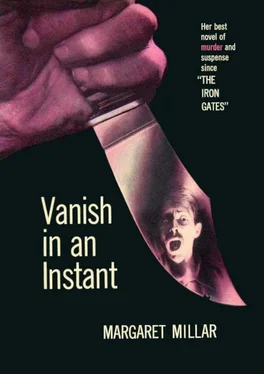



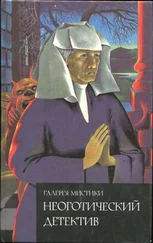
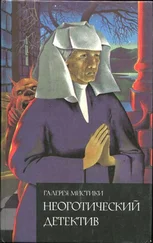

![Маргарет Миллар - Rose's Last Summer [= The Lively Corpse]](/books/384369/margaret-millar-rose-s-last-summer-the-lively-c-thumb.webp)
